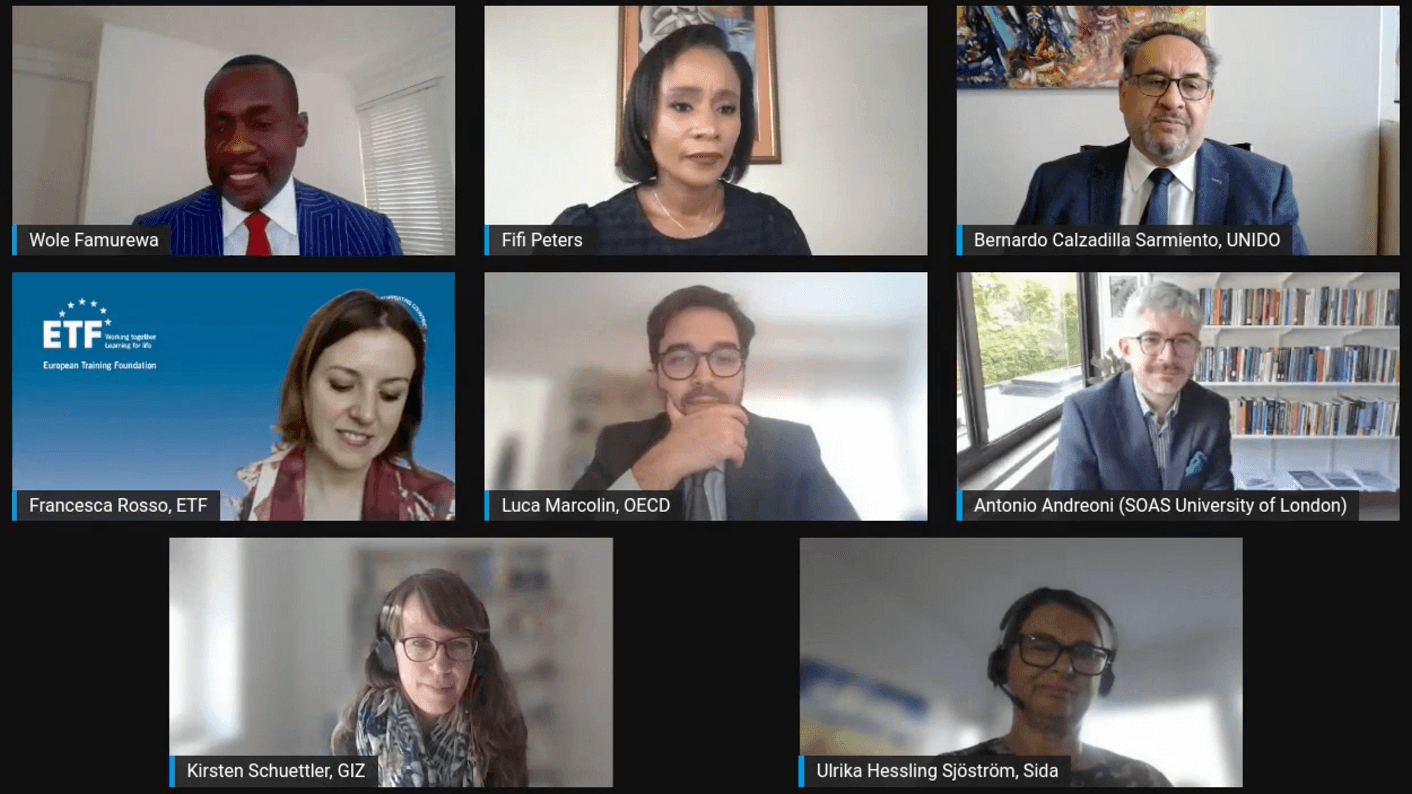The Future Is in Youth’s Hands: New Skills Needed for the Green Transition
UNIDO kicks off its annual forum on training (LKDF) with an expert discussion on resilience to prepare youth with skills to better respond to future challenges from climate change to pandemics and conflicts.
- October 04, 2022
- By Belinda Teoh
Note: this article was originally published on Impakter. Please access the original version here.

Over the past ten years, the United Nations Industrial Development Organization (UNIDO) has held an annual forum to discuss training challenges and promote industrial skills development among young people in emerging economies. Co-organized by its Learning and Knowledge Development Facility (LKDF) and Sweden’s government agency for development cooperation Sida, this year the event will focus on “Skills for Resilience: Are We Ready for a Skills Revolution?”
The upcoming LKDF meeting will be held virtually on 19 and 20 October 2022 and everyone interested is invited to register.
Why resilience? It’s not what so many people think it is, just an ability to get by and survive. On the contrary, as Manuela Prina, Head of Skills Identification and Development Unit at the European Training Foundation (ETF) points out, it is an “ability to respond” to challenges, to find solutions, to build the skills to not only survive but come out as winners in our increasingly dangerous and divisive world afflicted by pandemics, conflicts and climate change.
To make the green transition a success in Africa, Asia and the Middle East, where the vast majority of people are still off-grid, will require a broad, inclusive and systematic skilling of youth, because the future is in youth’s hands. And it’s not just a matter of improving skills, but upgrading, recycling and even lifelong learning: Talent and curiosity need to be developed.
In our uncertain times, it has become more important than ever to acquire the right skills, a point forcefully made by all the experts convened in an online talk hosted by Tunisian diplomat Aya Chebbi to launch the upcoming LKDF meeting:
Take the time to view this video, in a little over half-hour, it is packed with information from several of UNIDO’s main partners, including ETF, the European Union’s training foundation that has recently branched out of Europe with its first-ever regional project (DARYA) in Central Asia, launched in June this year.
Other interesting partners in that event include FESTO Didactic, the world-leading provider of equipment and solutions for technical education, the Swedish aid agency Sida, and Hewlett Packard with whom UNIDO has a partnership programme since 2008 to train youth in entrepreneurship and IT skills in Africa, Asia, Latin America and the Middle East. HP currently has a little over 500,000 people in their programmes and is planning to raise that figure to 1.5 million by 2030.
“The future of Africa is the younger generation,” says Matilda Muweme, senior programme Officer of UNIDO at the opening of the video event, recalling that “Africa has the youngest population; with 70% of the overall population under the age of 30.”
She mentions several training projects, organized by UNIDO and financed by Sida to develop youth entrepreneurial skills in road transportation in Liberia and Ethiopia. One in particular is that rarity: looking for high-school students to develop their entrepreneurship skills. This is being done in Nigeria, Namibia and several other African countries.
Young people in particular are invited to join the upcoming LKFD event: “By joining us, you may take your own initiative to develop knowledge and skills in the working sector,” Sida’s Urika Hossling-Sjöström tells us. And Mattias Larsen, a UNIDO industrial development expert, shows the programme on day 1 and day 2, pointing to the interesting partners sponsoring each talk.
Elfi Klumpp, Head of Partnership Development Global Education at Festo Didactic whose company is dedicated to creating avenues for individuals to become more resilient and employable workers, perhaps said it best when she reminded us that the key is to develop not only the 4Cs of soft skills which are critical thinking, creativity, collaboration and communication but also the technical skills necessary for the oncoming industry 4.0.
And, as she said, one needs to stay open, ready for upskilling and reskilling, learning can be “fun in practice” and “cool to apply”. An opportunity no youth should miss.


